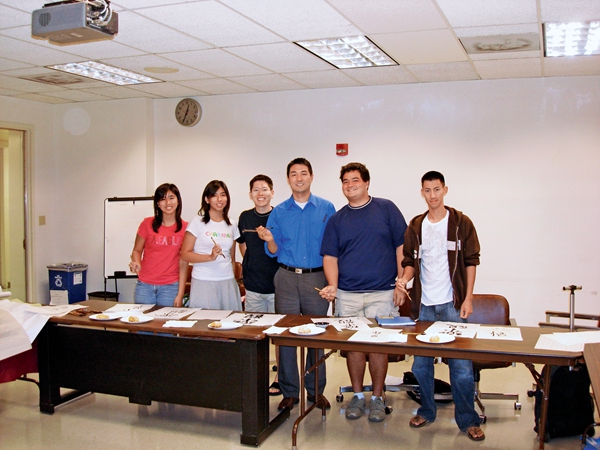What do you know about Chinese culture?
- By staff reporter Zhang Hui
 0 Comment(s)
0 Comment(s) Print
Print E-mail China Today, June 20, 2017
E-mail China Today, June 20, 2017
Textbook Perspectives
Dr. Liu Jinhui is a professor specializing in International Education, International Business, and Applied Linguistics. He teaches Chinese Language at California State University and is a research fellow with the National Resource Center for Asian Languages (NRCAL).
Over the last few years Dr. Liu, heading a team of postgraduate students, has conducted a survey of information about China presented in American school textbooks. In Californian schools, the team found that lessons on Chinese history and culture occurred from the sixth to the 12th grades, with the exception of the ninth grade.
Primary school textbooks featured history starting from the Shang Dynasty (c. 1600 - 1100 BC), so excluding the Xia Dynasty (c. 2100-1600 BC), which contradicts China's traditional image of itself as a 5,000-year-old civilization. Dr. Liu explained that according to American historians, there were not enough written records from the Xia Dynasty to merit its inclusion in the history books. He added that early Chinese law placed a greater emphasis on corporal punishment, which contrasts hugely with modern practices, although this has not been fully explained in the textbooks.
According to Dr. Liu, American middle school textbooks take a comparative approach to Chinese history and culture, often contrasting Han and non-Han cultures, with a particular focus on the influence of non-Han cultures on Confucianism in order to explain certain regime changes. The textbooks also compare China with other Asian countries, such as Japan, citing China's influence on Japanese language, culture, religion, and philosophy. Dynasties are not clearly delineated – the Yuan Dynasty (1206-1368), for example, was taught together with the Song Dynasty (960-1279) which preceded it, and the Ming Dynasty (1368-1644) which replaced it. Dr. Liu was particularly surprised to see that the "four great inventions" of ancient China had been lumped together with tea and referred to as the "five discoveries." The textbooks had clearly confused "invention" with "discovery."
|
Professor Liu instructs students in the intensive Chinese language learning program on the fundamentals of Chinese calligraphy. |
Most American high school textbooks focus on modern Chinese history. Dr. Liu has found that America, unlike many other Western countries, does not shy away from discussing colonial attitudes does in its school textbooks, and draws attention to colonialism's emergence from the Industrial Revolution which helped shape a new world order. Many American historians, including the prominent sinologist John King Fairbank, argue that U.S. colonial policies had been more generous than those of, say, England or France. To cite one example: the United States government returned the reparations which had been paid them after the Boxer Rebellion, with the recommendation that the money be used to improve China's education system, open more hospitals and develop education and health care in the country. However, despite their objective look at the history of America's colonial policies, Dr. Liu feels that American historians still tend to interpret history from the standpoint of their own country. High school textbooks do touch on China's recent economic reforms as well as mentioning China's rise as a modern world power, but Dr. Liu nevertheless finds the content oversimplified.







Go to Forum >>0 Comment(s)